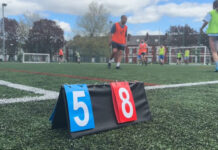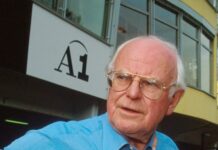The issue of knife crime has become massively relevant in Liverpool over the past decade.
Hundreds of incidents have caused chaos and now multiple campaigns are attempting to stop the issue continually spreading like it has over the years.
But more can be done from the athletes in the city to help stop the problem expanding.
Knife crime has been consistently growing and now Merseyside Police say it is at its highest level in 10 years, with more than 900 serious incidents reported last year.
That is up 18% compared to the previous year, which saw 801 knife crimes recorded, and the highest total on record going back to 2008/09.
A recent BBC report has suggested knife crime in Liverpool is rising quicker than in some London boroughs, with statistics saying their have been 16.3 knife crimes per 10,000 people in the city since 2016.
The Home Office have responded by saying 20,000 new police will be recruited over the next three years across the UK and of course that should make a difference, but having the athletes of the areas look to get involved and inspire the youngsters would be instrumental.
The death of Sam Cook had a massive effect on the city. The 21-year-old was celebrating his birthday at the Empire nightclub in Liverpool, before being stabbed by 23-year-old Carl Madigan after Cook became involved in an altercation with Madigan’s friend.
The incident hadn’t escalated far before he was stabbed last October.
The death sparked outcry in the city, being not gang related but a vicious assault in the city centre. It portrayed the expanding issue of young people fearing to go out at night and the problem of youths carrying knives. Hundreds of people joined Cook’s family on a march in the city a year on from his death to make the statement that enough is enough.
Boys as young as thirteen have been charged with knife offences and the city is getting worse, leading to multiple campaigns being created to help kick the issue from the city.
Liverpool City Council created the ‘Real men don’t carry knives’ campaign which is an education-based campaign looking to tackle the issue.
Representatives for the campaign visit local schools and areas to educate about the dangers and consequences surrounding carrying a knife, regardless of the intended use.
Mayor Joe Anderson set up the campaign after Cook’s death. He immediately called for metal detectors to be implemented in every nightclub in the city centre to stop knives entering the premises and to deter people from carrying a knife if they want to go to a club.
Mayor Anderson said: “The fact anyone is armed with a knife in a bar is really scary. We have to help the police with this.”
Merseyside Police’s campaign ‘#NoMoreKnives’ especially has put the issue at the forefront of the city’s concerns.
It focuses on education and understanding the consequences of carrying a knife by delivering talks in schools, youth clubs and groups of young offenders.
Supt Louise Harrison commented about the programme: “Everybody across Merseyside were doing great work but we weren’t joined up enough in terms of understanding what was out there. We took a different approach – knife issues aren’t just policing issues. It’s for schools, families, parents, prisons, everybody to work together on.”
Outside from the Police and authorities, the city’s sporting teams and athletes are trying to work together and help promote the campaign’s more, as ultimately they have a huge responsibility and reach to create change.
If the biggest stars in each city contribute, the issue could lessen by a few percent and make a difference.
Sport is the biggest part of Liverpool and some of the biggest sporting stars from the city have already taken a stand against the issue, which has helped bring some awareness.
The Premier League Kicks campaign teamed up with the Council’s campaign last September to host a football event backing the ‘Real men don’t carry knives’ campaign. The event was attended by Premier League legend Robbie Fowler, as well as two Everton under-23 players.
The event was a tournament featuring eight under 14’s teams with Shrewsbury House Youth Club becoming eventual winners. The LFC Foundation and Everton in the Community have combined together on multiple occasions to help kick knife crime from the city.
Liverpool FC’s foundation have started to host half-term holiday camps for local youths aged 14-19. The foundation are looking to build on from the Kicks Football+ initiative in using education and sport to reduce anti-social behaviour in the area.
A three day camp in April featured motivational talks from inspirational people, linking in sport as well.
Former Royal Marine and amputee Andy Grant spoke to the group on the second day about his journey and the mindset needed for success.
Participants also visited boxing coach Alan Walsh who hosted a anti-knife crime workshop as part of his own city-wide campaign to erase knife crime from the city.
Multiple holiday camps have been successful and will continue to help educate the youth.
Speaking about the newly-formed workshops, Premier League Kicks leader Tony Cosgrove said: “It’s fantastic to see so many of our young people get involved in these sessions and learn from such a wide range of inspirational people.”
Everton in the Community have done their part as well. Representatives of the EitC were involved in the Toxteth March to protest against gun and knife crime. The march was sparked by the death of Yusuf Sonko, with a large group of youths led by Yusuf’s mother marching from Tiber Square to Liverpool Lime Street Station.
The popular teenager was tragically killed by a gun over a year ago. The march featured talks from Yusuf’s parents, as well as boxer Natasha Jonas who spoke poigantly about the dangers.
Ex-boxer Tony Bellew has been outspoken about the issue on social media. The former World Cruiserweight champion speaks regularly about the dangers of the area he grew up in.
He joined multiple people across Liverpool in sharing a video message of support for the cause and especially the efforts of MMA coach Paul Bentley.
Paul asked that scousers should video themselves condemning the problem. Bellew said in the video: “Liverpool is my city. No more knives.”
Current MMA fighters from the Next Generation MMA gym have been outspoken especially. Lightweight fighter and former Cage Warriors champion Paddy Pimblett held a t-shirt
with #NoMoreKnives on in his post fight interview at Cage Warriors 90.
Pimblett’s comments came after a man was stabbed after Cage Warriors 82 in the Echo Arena in April 2017.
One of the city’s most notable athletes Darren Till has his own experience with knife crime that shaped his life and martial arts career.
As a teenager, Till was stabbed twice in the back in Liverpool after a fight broke out. The stabbing nearly cost him his life and forced a change.
Till, a growing fighter at the time, was told to move to Brazil by his coach Colin Heron to escape the troubles the city presented.
The 25-year-old has previously showed his concern about the recent stabbings in the city, tweeting: “The f***s going on when a kid can’t walk out of a restaurant in Chinatown – Liverpool without getting stabbed. #NoMoreKnives”
The support from athletes and sporting clubs in Liverpool has definitely helped educate local youths about the dangers of knife crime, but more is needed to eradicate the issue entirely from the city.
Knife crime is a national issue, but high-profile figures in the sporting world should be doing all they can in Merseyside to help.
Photo: James Case under Creative Media Commons

















